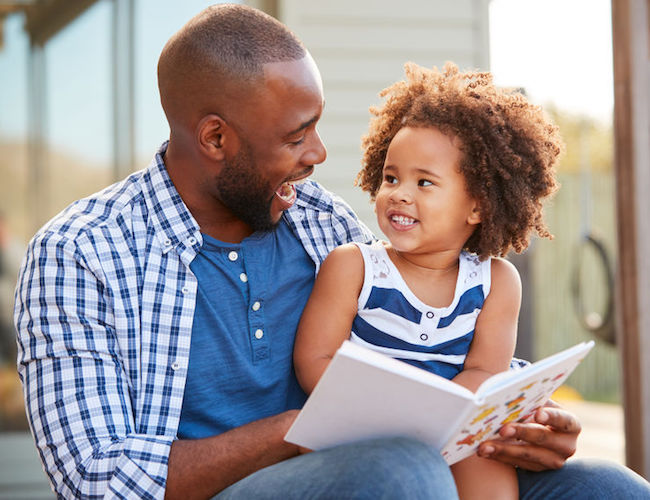How well should my toddler be able to talk?
Wondering whether your little one’s language development is on track? These are the key speech milestones to look for at each stage.
By 12 months
Most children will say their first word between 9 and 14 months old. It’s a magical moment when sound and meaning meet, opening up a new level of communication in your relationship with your child. By your baby’s first birthday, they will probably be able to use between one and three ‘words’ (yes, they do count even if you’re the only one who knows what they mean!). But some toddlers don’t utter a recognisable word until 18 months.
As with all the major milestones, there’s a wide range of ‘normal’, so don’t treat the guideline as a deadline to fret over. The most important signs to look for are that your child is making lots of experimental sounds (‘babbling’), trying to communicate with noises or gestures, and that they seem to understand simple words and phrases.
By 18 months
According to the South African Department of Health’s Road to Health guide, your child should understand words for at least two common objects (such as ‘cup’) by the age of 18 months. By the same age, they should use at least three words other than names, and follow simple instructions such as, ‘Come here’.
By 24 months
According to Cape Town-based paediatrician Dr Hanneke Heyns, your two-year-old should have about 200 words in their vocabulary and be able to string them together in simple two- or three-word sentences.
Research by Dr Leslie Rescorla of Bryn Mawr College in the United States suggests that two-year-olds should be able to say most of the following common words. Bear in mind that the list is culturally specific (South African children are unlikely to say ‘cookie’) and applies to children whose first language is English.
-
Mommy
-
Daddy
-
Baby
-
Milk
-
Juice
-
Hello
-
Bye-bye
-
Yes
-
No
-
Dog
-
Cat
-
Ball
-
Nose
-
Eye
-
Banana
-
Cookie
-
Car
-
Hot
-
Thank you
-
Bath
-
Shoe
-
Hat
-
Book
-
More
-
All gone
When is there cause for concern?
If your child isn’t meeting these language development guidelines, don’t panic. There are many reasons for taking a bit longer to start communicating with words.
For instance, bilingual children, who are exposed to two languages at home, are often ‘late talkers’ compared to their monolingual peers. Others are simply less verbal and social by nature but have a strong inclination for reason and analytical thinking. (You might have heard of the ‘Einstein syndrome’ – so named because the famous German physicist didn’t say a word until he was three years old).
However, speech delays can be linked to hearing problems, so speak to your child’s doctor if you notice they’re not responding to sounds. If your child doesn’t seem to understand simple words by 15 months, seek a professional opinion. The same goes for children who aren’t saying anything by 18 months, who don’t follow simple instructions by 21 months, or who aren’t putting at least two words together by age two.
If your child loses words and starts speaking less than before, take them to a paediatrician to be assessed, advises Dr Heyns.
IMAGE CREDIT: 123rf.com



